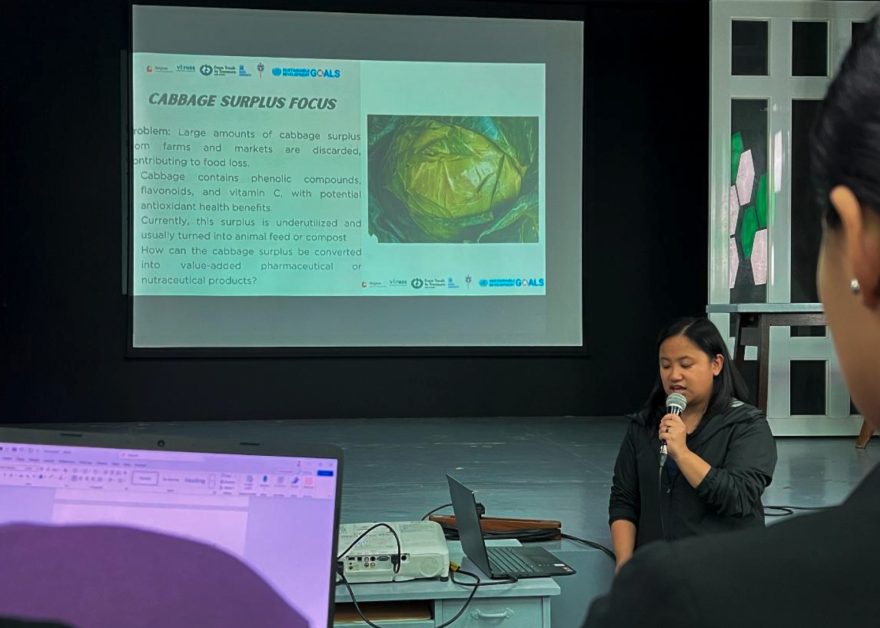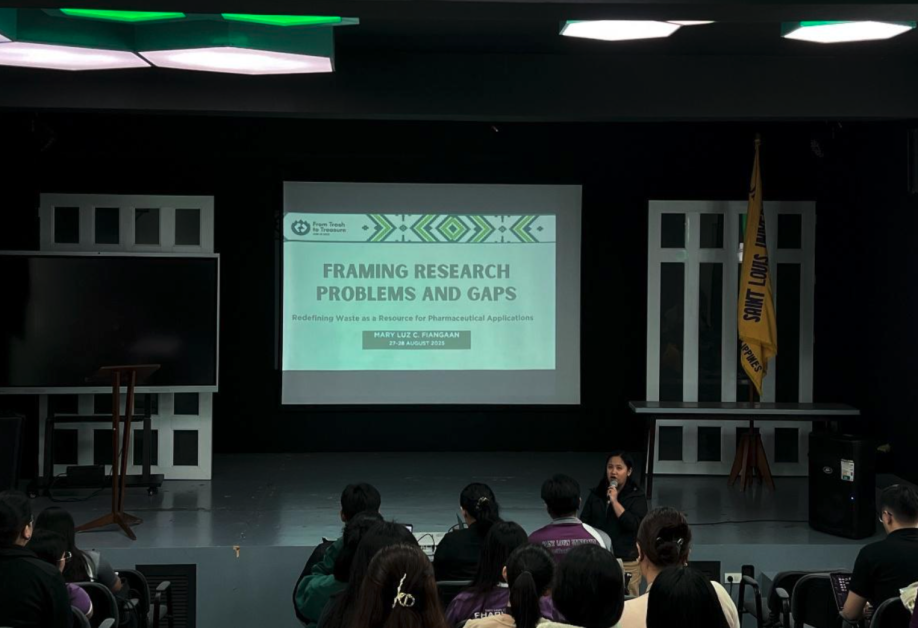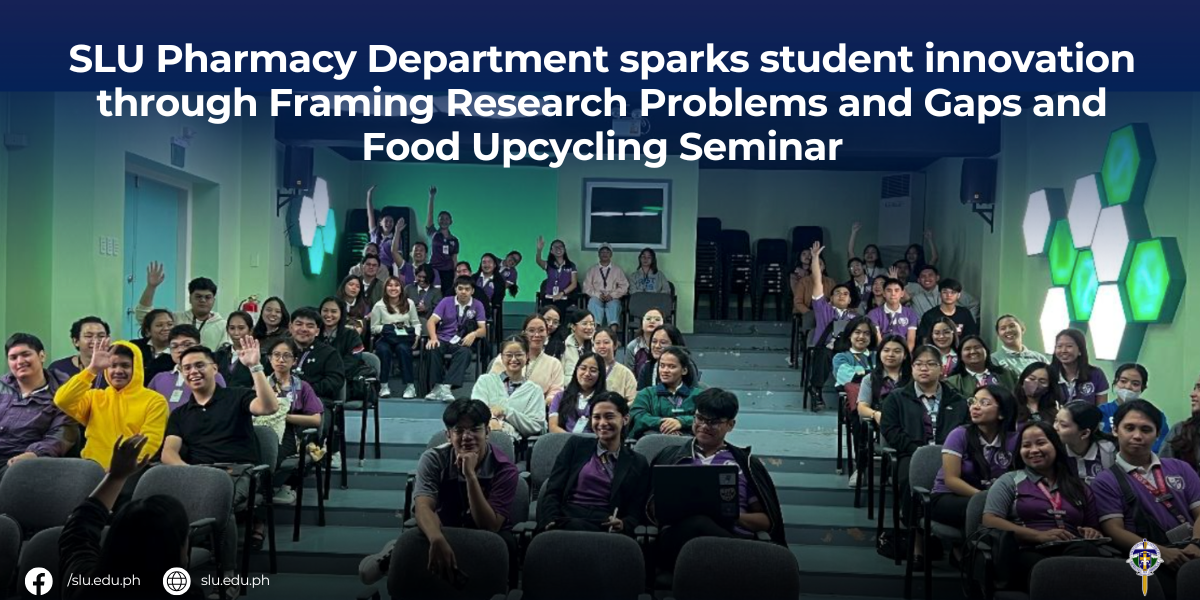The Department of Pharmacy of the Saint Louis University (SLU) School of Nursing, Allied Health, and Biological Sciences (SONAHBS) successfully hosted a two-day seminar on “Framing Research Problems and Gaps” on 27-28 August 2025, at the Rizal AVR, SLU Main Campus.
The seminar was designed to guide and inspire third-year pharmacy students as they enter the crucial stage of developing their undergraduate research projects. At the heart of the seminar was the theme “Redefining Waste as a Resource for Pharmaceutical Applications,” which highlighted the emerging field of food upcycling as both a research direction and a sustainability initiative.
Organized by dedicated faculty led by Mary Luz Fiangaan, the activity was covered by the SLU–Gent University VLIR UOS Food Upcycling Project to address SDGs 12 (Sustainable Production and Consumption) and 2 (Ending Hunger & Achieving Food Security).


In her keynote message, Fiangaan emphasized the role of pharmacy students in pioneering solutions that respond not only to scientific needs but also to pressing global concerns. “Food upcycling research allows us to transform waste into resources for formulations, health products, and sustainable practices. As future pharmacists, you are called to be innovators and problem-solvers in the face of both health and environmental challenges,” she noted.
The seminar provided students with a framework on how to identify and frame research problems that are relevant, feasible, and impactful; spot research gaps in existing literature and connect these to practical applications; and explore how surplus agricultural produce and food waste, such as cabbage and other crops, can be repurposed into nutraceuticals, pharmaceuticals, and functional health products.
Interactive discussions and case illustrations helped participants see how redefining waste could open new opportunities for drug development, natural product research, and sustainable community practices. She also shared their VLIR-granted project on utilizing surplus cabbage and cabbage trimmings as sources of pharmaceutical excipients and nutraceuticals, inspiring students to integrate innovation with social responsibility.The activity concluded with a challenge to students to apply the insights gained in their upcoming research undertakings. By linking pharmaceutical sciences with sustainability, the Department of Pharmacy hopes to nurture a new generation of researchers who are both scientifically competent and socially and environmentally conscious. (Article by Dhianna Cadaweng | Photos by Marianne Valeroso and Precious Mae Biñegas)










